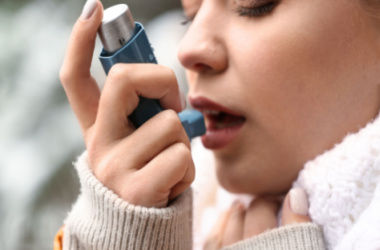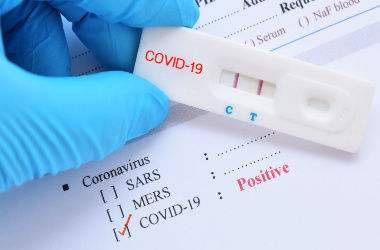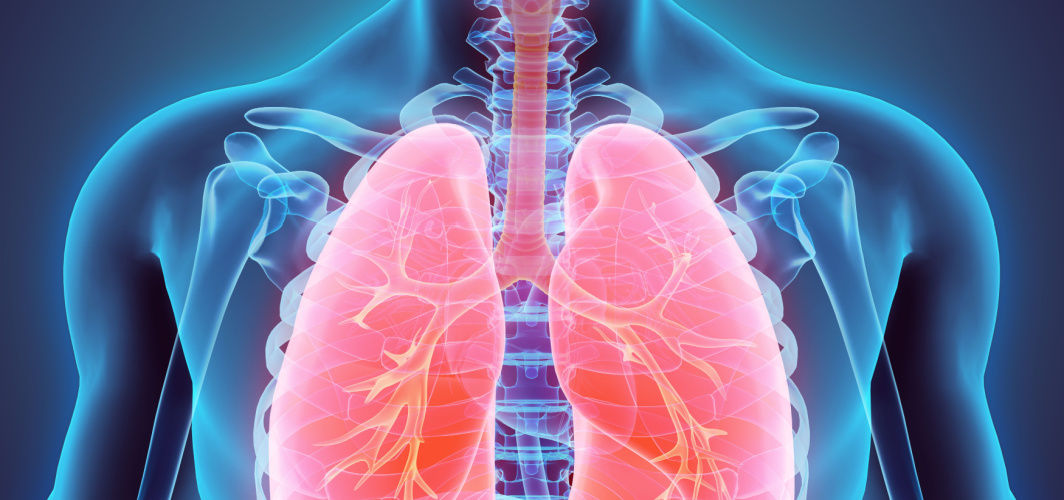Respiratory Health
Don’t Ignore Dry Cough. It Can Be A Symptom Of These Diseases
4 min read
By Apollo 24|7, Published on - 22 July 2022, Updated on - 07 August 2024
Share this article
0
0 like

Every day we breathe in millions of microscopic particles along with the air. While most of these tiny particles are filtered out by our lungs, certain particles get lodged in your airways and cause irritation. The body tries to clear the airways through a reflex action called cough. Broadly, this reflex action is categorized into two types: productive (wet) cough and unproductive (dry) cough. While a productive cough produces phlegm by clearing out mucus from the lungs, a nonproductive cough doesn’t produce phlegm. Occasional dry cough is normal, however, a persistent dry cough can be an indication of an underlying medical condition. The article explains the possible causes of a dry cough and ways to get relief in detail below.
Major Causes of Dry Cough
1. Upper Respiratory Infection
An acute upper respiratory infection is a condition that occurs when a pathogen infects your nose and respiratory tract. Common cold, flu, sinusitis, pharyngitis, and tracheobronchitis are some of the most common types of URIs. The cough caused by URIs is usually productive in the beginning but eventually becomes dry as a person starts recovering from the infection. Other symptoms include fever, runny nose, sneezing, sore throat, and pain in muscles. Allergies, pulmonary fibrosis, whooping cough, collapsed lungs, and lung cancer are some of the other less common causes of dry cough.
2. Asthma
Asthma is a chronic inflammatory respiratory disease that causes swelling and narrowing of the airways in the lungs. The condition is believed to be caused by a combination of environmental, lifestyle, and genetic factors. Chronic dry cough is one of the main symptoms of cough variant asthma. The symptom is often worse at night or early in the morning. Wheezing, shortness of breath, and tightness in the chest are some of the other symptoms of asthma.

3. Postnasal Drip
Postnasal drip refers to a condition in which excess mucus from the nose and sinuses starts dripping down the back of the throat. It occurs when a cold or nasal allergy triggers the membrane of your nose to secrete more mucus than usual. The resulting drip can tickle the nerves in the throat and result in coughing. While the cough caused due to postnasal drip is most productive, it can also lead to a dry cough. Other symptoms of postnasal drip may include runny nose, sore throat, trouble swallowing, and coughing at night.
4. GERD
Gastroesophageal reflux disease (GERD) is a chronic condition that occurs when acid from the stomach regularly flows back into the oesophagus (foodpipe). The acid can irritate the lining of your oesophagus and lead to cough reflux. It is believed that nearly 40% of people with GERD experience chronic, dry cough. Other common symptoms of GERD are heartburn, pain in the chest, and chronic sore throat.
5. COVID-19
Dry cough is one of the primary symptoms of COVID-19, a respiratory disease caused by the SARS-CoV-2 virus. It is believed that the symptom affects nearly 60 to 70 per cent of the infected people. According to one study, most people develop a cough just one day after getting infected with SARS-CoV-2. In some cases, the symptom can last for as long as 19 days. Other symptoms of COVID-19 include fever, tiredness, headache, sore throat, pain in muscles, and diarrhoea.

How To Treat Dry Cough?
Treatment for dry cough mostly depends on the underlying cause. Nevertheless, there are general treatments and home remedies that may offer relief, such as:
1. Cough syrup
Cough syrup is a cough suppressant that contains dextromethorphan, which may help reduce the frequency of cough effectively. It can be consumed with or without food and may cause drowsiness post-intake.
2. Honey
According to research, the thick, golden liquid produced by bees is more effective in treating cough than most over-the-counter (OTC) medicines. You can add honey to a herbal tea to soothe your irritated throat and airway.
3. Lozenges
Sucking on lozenges or hard candies made of herbal ingredients like menthol, liquorice, eucalyptus, and honey promotes the production of saliva, which may help ease irritation in your throat.

How to prevent dry cough?
Things that may reduce your chances of developing a dry cough are:
- Drink plenty of water
- Frequently wash hands to prevent infections
- Use a cool-mist humidifier to add moisture to the air
- Avoid exposure to allergens and environmental irritants
- Quit smoking and avoid exposure to secondhand smoke
An occasional dry cough is completely normal. However, if it persists for more than 2 or 3 weeks, then it may be an indicator of an underlying medical condition. Meanwhile, you can buy cough syrup to deal with your dry cough.
Click To Buy Benadryl Cough Syrup
If you are not sure about what is causing your cough, it is recommended to consult a physician to determine the best course of treatment.
Medically reviewed by Dr Sonia Bhatt.
Respiratory Health
Consult Top Counseling Specialists
View AllLeave Comment
Recommended for you

Respiratory Health
Is Your Blood Oxygen Saturation Level Safe?
In people with chronic lung conditions such as asthma, COPD, and more recently COVID-19, the blood oxygen levels may drop below the desired levels requiring prompt medical attention.

Respiratory Health
Rare Lung Diseases: Types, Causes & Treatment
Discover the different types of rare lung diseases, their causes, and the latest treatments available. Stay informed about the advancements in medical guidelines and lifestyle factors that can help manage these conditions effectively.

Respiratory Health
How Does Stress Impact the Lungs and Respiratory Health?
Studies indicate that stress can lead to wear and tear of the lungs thereby deteriorating respiratory health and worsening the symptoms of chronic lung conditions.
Subscribe
Sign up for our free Health Library Daily Newsletter
Get doctor-approved health tips, news, and more.
Visual Stories

Managing COPD During the COVID-19 Pandemic
Tap to continue exploring
Recommended for you

Respiratory Health
Is Your Blood Oxygen Saturation Level Safe?
In people with chronic lung conditions such as asthma, COPD, and more recently COVID-19, the blood oxygen levels may drop below the desired levels requiring prompt medical attention.

Respiratory Health
Rare Lung Diseases: Types, Causes & Treatment
Discover the different types of rare lung diseases, their causes, and the latest treatments available. Stay informed about the advancements in medical guidelines and lifestyle factors that can help manage these conditions effectively.

Respiratory Health
How Does Stress Impact the Lungs and Respiratory Health?
Studies indicate that stress can lead to wear and tear of the lungs thereby deteriorating respiratory health and worsening the symptoms of chronic lung conditions.



